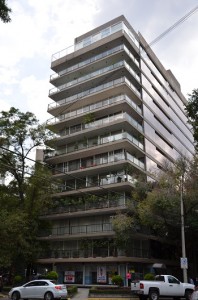Apartment Survival
Home ownership, the standard
Most descriptions of preparing for disaster seem to focus on a single family home and how its residents should prepare. These descriptions include making changes to the building itself, like installing braces or safety glass or reinforcing the chimney or roof. Some families go so far as to fortify their homes or to build totally separate disaster shelters.
Naturally, the family stores large quantities of water and food and perhaps invests in emergency equipment like solar panels or generators. The family also is reminded to include emergency preparations for pets.
 But what about renters?
But what about renters?
But if you are one of the 35% of all households that live in rented homes and particularly in apartments, options may be different – and limited. You probably have far less square footage to start with. You are not likely to have outside area where emergency items could be securely stored or easily accessed. And you certainly would not be allowed to make any structural changes to make the building any sturdier or safer.
What can apartment dwellers do differently?
1. Be efficient!
Your requirements are every bit as important as those of a family living in a single family home, but you will definitely have to be cleverer in order to store even the basics. The smart apartment dweller will become an expert in high-nutritional-value, low-bulk food and in multi-purpose tools and equipment. Instead of investing in a generator, the apartment dweller may need to invest in storage containers that can be hidden under the bed, stacked 8 feet high in a closet, or converted to use as an end-table.
2. Be creative!
Whereas someone with plenty of space outside can store emergency water in a 55 gallon barrel, you may have to make do with a variety of individual bottles, supplemented with a supply of expandable bottles, to be filled at the last minute. Given your limited ability to store water, you may be putting your filtration equipment to use immediately as you are forced to supplement your original water supply.
3. Make friends!
In an apartment setting, neighbors can make all the difference. A group of people can cooperate in assembling and storing food, tools, and other essentials. (For example, two families could share one stove.) One neighbor may have handyman skills and tools; another might have medical training; a third might be a competent cook. Sharing the burdens and responsibilities may serve the entire community better than each person trying to fend for him or herself.
For a whole lot of ideas about organizing your neighbors, check out Emergency Preparedness for Apartment Communities. It discusses getting your own preparedness act together and then helping neighbors get prepared, too.
